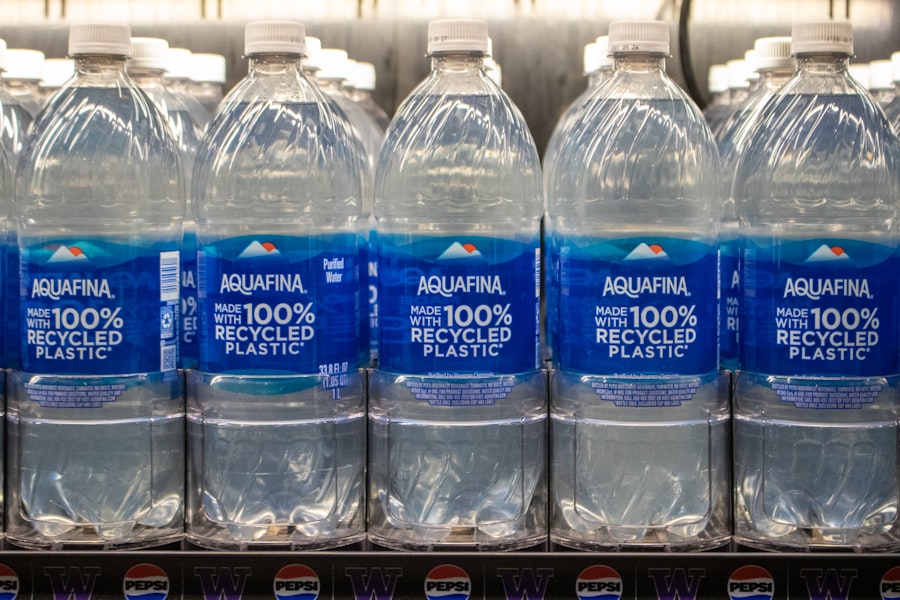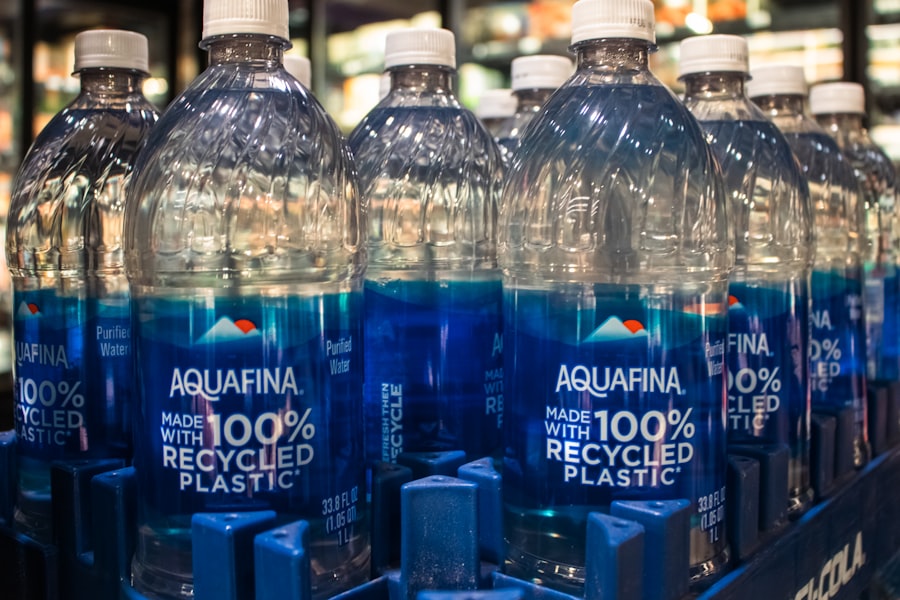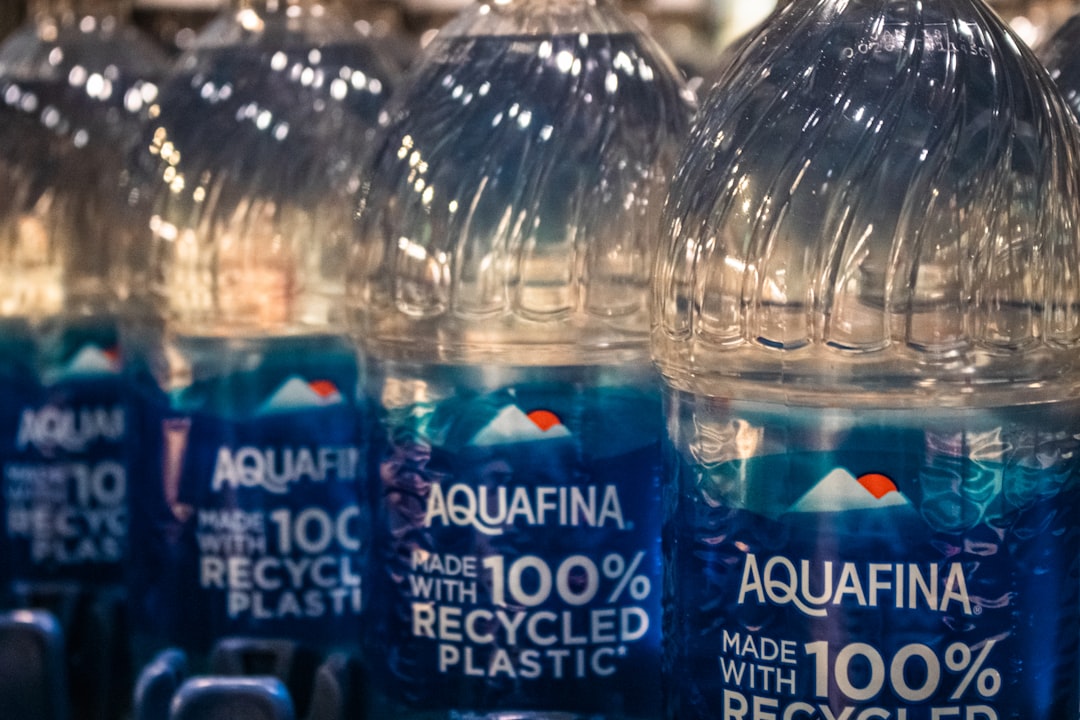In recent years, the bottled water industry has faced increasing scrutiny regarding its environmental impact. Many consumers believe that purchasing bottled water is a responsible choice because they assume that the plastic bottles are recycled effectively. This perception has led to a widespread myth: that bottled water is a sustainable option due to its recyclability.
However, this belief is not only misleading but also obscures the broader issues associated with plastic waste and environmental degradation. The reality is that while recycling is a crucial component of waste management, it is not a panacea for the problems posed by single-use plastics. The myth of bottled water recycling perpetuates a cycle of consumption that ultimately harms the environment.
As consumers continue to buy bottled water under the impression that they are making an eco-friendly choice, they inadvertently contribute to a system that prioritizes convenience over sustainability. This article aims to unravel the complexities surrounding bottled water recycling, shedding light on the truth behind its environmental impact and exploring viable alternatives for reducing plastic waste.
Key Takeaways
- Bottled water recycling rates are often overstated, leading to misconceptions about its environmental impact.
- Plastic bottles contribute significantly to pollution and pose challenges in recycling processes.
- Reducing plastic waste is crucial for environmental sustainability and requires both individual and systemic efforts.
- Using reusable water bottles and exploring alternatives can significantly decrease plastic consumption.
- Government policies and industry actions play a vital role in managing plastic waste and promoting sustainable practices.
The Truth About Bottled Water Recycling
The reality of bottled water recycling is far more complex than many consumers realize. While it is true that plastic bottles can be recycled, the actual rates of recycling are alarmingly low. According to various studies, only a fraction of plastic bottles are collected and processed for recycling.
The majority end up in landfills or, worse, in oceans and other natural habitats, where they contribute to pollution and harm wildlife. This stark contrast between perception and reality highlights the need for greater awareness about the limitations of recycling as a solution to plastic waste. Moreover, the recycling process itself is not as straightforward as one might think.
Many plastic bottles are made from polyethylene terephthalate (PET), which can be recycled but often requires significant energy and resources to do so. Additionally, contamination from food residues or other materials can render bottles unrecyclable, further complicating the process. As a result, even when consumers diligently place their bottles in recycling bins, there is no guarantee that those bottles will be effectively recycled.
The Environmental Impact of Bottled Water

The environmental impact of bottled water extends far beyond the issue of recycling. The production of bottled water involves significant resource consumption, including water, energy, and fossil fuels. For instance, it takes approximately three liters of water to produce just one liter of bottled water, factoring in the water used in manufacturing and transportation.
This excessive use of resources raises serious questions about sustainability, especially in regions facing water scarcity. Furthermore, the carbon footprint associated with bottled water production and distribution is substantial. From extraction to bottling and transportation, each step contributes to greenhouse gas emissions that exacerbate climate change.
The environmental toll does not stop there; discarded plastic bottles contribute to pollution in oceans and waterways, posing threats to marine life and ecosystems. The cumulative effects of these practices highlight the urgent need for a reevaluation of bottled water consumption and its broader implications for the planet.
The Problem with Plastic Bottles
| Metric | Value | Unit | Notes |
|---|---|---|---|
| Annual Plastic Bottle Production | 500 | billion | Global estimate of plastic bottles produced yearly |
| Percentage of Bottles Recycled | 30 | % | Estimated global recycling rate for plastic bottles |
| Average Time to Decompose | 450 | years | Time taken for plastic bottles to break down in the environment |
| Plastic Bottles Found in Oceans | 1.15 | million tons | Annual estimate of plastic bottle waste entering oceans |
| Water Used to Produce One Bottle | 3 | liters | Water footprint for manufacturing a single plastic bottle |
| CO2 Emissions per Bottle | 0.1 | kg CO2 | Carbon footprint associated with producing one plastic bottle |
Plastic bottles represent one of the most pervasive forms of single-use plastics in modern society. Their convenience has made them a staple in everyday life, but this convenience comes at a significant cost to the environment. The production of plastic bottles not only depletes natural resources but also generates toxic emissions that can harm both human health and the environment.
Additionally, the durability of plastic means that once it is discarded, it can take hundreds of years to decompose, leading to long-lasting pollution. The problem is further compounded by consumer behavior. Many individuals view plastic bottles as disposable items, often using them only once before discarding them without a second thought.
This throwaway culture perpetuates a cycle of waste that is difficult to break. As plastic bottles accumulate in landfills and natural habitats, they contribute to an ever-growing environmental crisis that demands immediate attention and action.
The Challenges of Recycling Plastic Bottles
Recycling plastic bottles presents numerous challenges that hinder effective waste management efforts.
While some areas have robust recycling programs, others lack the necessary facilities or resources to process plastic waste effectively.
This disparity leads to inconsistent recycling rates and contributes to the overall problem of plastic pollution. Additionally, even in areas with established recycling programs, consumer participation plays a crucial role in determining success rates. Contamination from non-recyclable materials can compromise entire batches of recyclables, rendering them unusable.
Furthermore, many consumers remain unaware of proper recycling practices, leading to confusion about what can and cannot be recycled. These challenges highlight the need for improved education and awareness campaigns aimed at promoting responsible recycling behaviors.
The Importance of Reducing Plastic Waste

Reducing plastic waste is essential for protecting the environment and ensuring a sustainable future. The sheer volume of plastic produced each year is staggering, with millions of tons ending up in landfills and oceans. This not only poses a threat to wildlife but also disrupts ecosystems and contributes to climate change.
By prioritizing waste reduction strategies, individuals and communities can play a vital role in mitigating these impacts. One effective approach to reducing plastic waste is through conscious consumer choices. By opting for products with minimal packaging or choosing reusable alternatives, individuals can significantly decrease their reliance on single-use plastics like bottled water.
Additionally, advocating for policies that promote sustainable practices and support local initiatives can further amplify efforts to combat plastic pollution on a larger scale.
Alternatives to Bottled Water
As awareness grows about the environmental impact of bottled water, many individuals are seeking alternatives that align with their values of sustainability and conservation. One popular option is using reusable water bottles made from stainless steel or glass. These durable materials not only reduce reliance on single-use plastics but also offer a healthier alternative by eliminating concerns about chemical leaching from plastic.
Another alternative gaining traction is filtered tap water. Many municipalities provide safe drinking water that can be easily accessed at home or work. Investing in a quality water filter can enhance taste and remove impurities while significantly reducing plastic waste associated with bottled water consumption.
By embracing these alternatives, individuals can make meaningful contributions toward reducing their environmental footprint.
How to Reduce Your Plastic Consumption
Reducing plastic consumption requires intentionality and commitment from individuals at all levels. One effective strategy is to conduct a personal audit of daily habits and identify areas where plastic use can be minimized. Simple changes, such as bringing reusable bags for shopping or opting for bulk purchases instead of pre-packaged items, can lead to significant reductions in plastic waste over time.
Education also plays a crucial role in fostering sustainable habits. By staying informed about the environmental impact of plastics and sharing knowledge with others, individuals can inspire collective action within their communities. Participating in local clean-up events or advocating for policies aimed at reducing plastic production can further amplify efforts toward creating a more sustainable future.
The Role of Government and Industry in Addressing Plastic Waste
Addressing the issue of plastic waste requires collaboration between government entities and industries involved in production and distribution. Policymakers have a responsibility to implement regulations that promote sustainable practices and incentivize businesses to adopt eco-friendly alternatives. This may include measures such as banning single-use plastics or implementing deposit return schemes for beverage containers.
Industries also play a critical role in driving change by investing in research and development for sustainable packaging solutions. By prioritizing innovation and transparency in their supply chains, companies can contribute to reducing plastic waste while meeting consumer demand for environmentally responsible products. Together, government and industry can create an ecosystem that supports sustainability and fosters positive change.
The Benefits of Using Reusable Water Bottles
The benefits of using reusable water bottles extend beyond environmental considerations; they also encompass economic advantages and health benefits. By investing in a high-quality reusable bottle, individuals can save money over time by eliminating the need to purchase bottled water regularly. This not only reduces expenses but also encourages healthier hydration habits by promoting consistent water intake throughout the day.
Moreover, reusable bottles often come with features designed for convenience and functionality, such as insulation for temperature retention or built-in filters for enhanced taste. These added benefits make reusable bottles an attractive option for consumers seeking both practicality and sustainability in their daily lives.
Moving Towards a Sustainable Future
In conclusion, the myth surrounding bottled water recycling serves as a reminder of the complexities associated with plastic consumption and waste management. As awareness grows about the environmental impact of single-use plastics, individuals are increasingly seeking alternatives that align with their values of sustainability and conservation. By embracing reusable options, advocating for responsible policies, and committing to reducing plastic consumption, society can collectively work towards a more sustainable future.
The journey toward sustainability requires collaboration among individuals, communities, governments, and industries alike. By fostering a culture of awareness and responsibility regarding plastic use, society can pave the way for meaningful change that protects the environment for future generations. Ultimately, moving away from reliance on bottled water is not just an individual choice; it represents a collective commitment to preserving our planet’s resources and ensuring a healthier world for all.
The myth surrounding bottled water recycling has been a topic of much debate, and a recent article has effectively debunked some common misconceptions. For a deeper understanding of this issue, you can read more in the article found here. This resource provides valuable insights into the realities of bottled water recycling and the environmental implications associated with it.
WATCH THIS! The $400 Billion Water Lie: Why Bottled Water Is a Scam
FAQs
Is recycling bottled water containers effective in reducing plastic waste?
Yes, recycling bottled water containers helps reduce plastic waste by diverting plastic from landfills and oceans. However, the effectiveness depends on proper recycling practices and the availability of recycling facilities.
Do all plastic water bottles get recycled?
No, not all plastic water bottles are recycled. Many bottles end up in landfills or as litter due to improper disposal or lack of recycling infrastructure. Recycling rates vary by region and depend on consumer participation.
Are recycled plastic bottles turned into new water bottles?
Typically, recycled plastic bottles are not directly turned into new water bottles due to strict food safety regulations. Instead, they are often repurposed into products like clothing, carpeting, or containers for non-food items.
Does recycling bottled water save energy compared to producing new plastic?
Yes, recycling plastic bottles generally uses less energy than producing new plastic from raw materials. This energy saving helps reduce greenhouse gas emissions associated with plastic production.
Is bottled water recycling a complete solution to plastic pollution?
No, while recycling is important, it is not a complete solution. Reducing plastic use, improving waste management, and developing alternative packaging are also necessary to address plastic pollution effectively.
Can consumers improve bottled water recycling rates?
Yes, consumers can improve recycling rates by properly rinsing and sorting bottles, using designated recycling bins, and supporting products made from recycled materials. Public awareness and participation are key to successful recycling programs.
